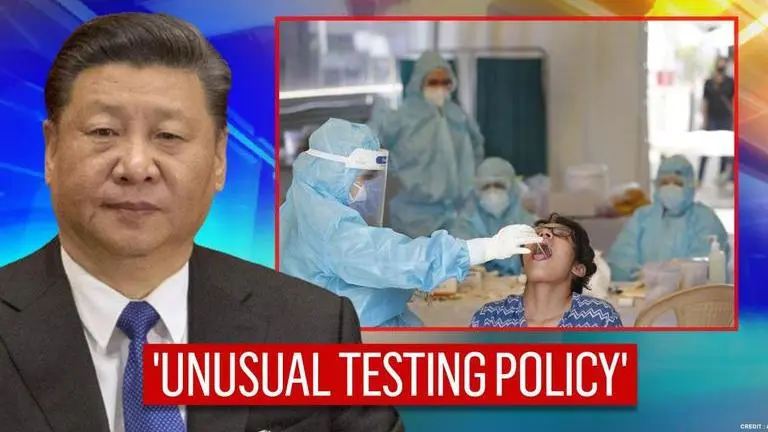Updated 15 November 2020 at 14:18 IST
Health experts raise concerns over China's new COVID-19 testing policy for travellers
Health experts have expressed concern over China's new COVID-19 testing policy that requires inbound travellers to present negative results from antibody tests
- World News
- 2 min read

Health experts around the world have expressed concern over China's new COVID-19 testing policy that requires inbound travellers to present negative results from an antibody test, which can neither reliably rule out infections, nor prove that a person is not transmitting the virus to others.
Experts argued that the policy seemed to reflect an outdated understanding of the ways in which the virus interacts with the immune system interact. Guidelines issued by the Centers for Disease Control and Prevention describe antibody positives as a generally poor substitute for testing the presence of the active virus in the body.
Previous policies introduced by China demanded that travellers test negative only by a “nucleic acid test,” which detects the genetic material of coronavirus. Most available tests that meet this requirement rely on the PCR technique, which can detect the virus even when it is present at very low levels in the body.
Advertisement
China adopts a dual test policy
But as COVID-19 continues to spread in countries like America, the United Kingdom, Ireland, and Russia, Chinese health officials grew concerned that some foreign travellers might slip through the diagnostic cracks. They then opted to pair PCR with a second test to help achieve accuracy in virus screening. While this could be a sound strategy, the approach quickly falls apart if the wrong test is selected as a safety net, an expert said.
Advertisement
Along with a negative nucleic acid test results, China has now asked travellers to prove they have tested negative on an IgM antibody test, taken within 48 hours of boarding. These tests detect antibodies called immunoglobulin which is usually roused against infectious invaders.,However, scientists believe that IgM antibodies are particularly slow; taking as many as two weeks after the onset of symptoms to produce an IgM response.
When asked whether China would address the concerns raised on its new COVID-19 testing policy, the embassy spokesperson said that the IgM antibody test was capable of producing “stable” results. Combining nucleic acid tests and IgM antibody tests “has been implemented in some countries on a trial basis, and is working well,” he said, without clarifying on which countries have implemented such protocols.
Published By : Gloria Methri
Published On: 15 November 2020 at 14:18 IST
